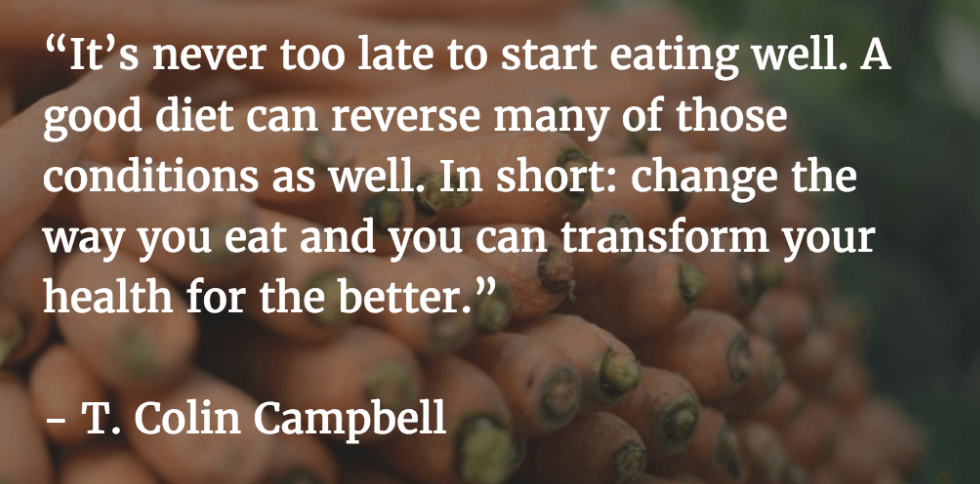The China Study is a book by T. Colin Campbell, a nutritional scientist, and his son, Thomas M. Campbell II, a physician. The book is based on the China-Cornell-Oxford Project, a 20-year study of nutrition and health in China. The study, which was funded by the Chinese government and the U.S. National Institutes of Health, is the most comprehensive study of nutrition ever conducted.
The China Study argues that a plant-based diet is the best way to prevent and reverse many chronic diseases, such as heart disease, cancer, and diabetes. The book presents evidence that animal-based foods, especially those that are highly processed, contribute to these diseases. The authors argue that the key to good health is not the amount of protein in the diet, but the type of protein. They claim that animal protein promotes chronic diseases, while plant protein promotes good health.
One of the main arguments of the book is that animal-based foods contain high levels of saturated fat and cholesterol, which contribute to heart disease. The authors claim that the high levels of protein in animal-based foods also contribute to chronic diseases, as protein metabolism produces toxic byproducts that can damage cells and lead to the development of cancer.
The China Study also argues that plant-based diets can prevent and reverse many chronic diseases. The authors claim that plant-based diets are rich in antioxidants, which can protect against cancer and other diseases. Plant-based diets are also high in fiber, which can help prevent constipation and other digestive problems.
The book presents evidence that plant-based diets can lower the risk of heart disease, cancer, and diabetes. The authors claim that plant-based diets can lower cholesterol levels and blood pressure, which can reduce the risk of heart disease. They also argue that plant-based diets can lower the risk of cancer by reducing the levels of estrogen and other hormones that can stimulate the growth of cancer cells.
The China Study also discusses the importance of whole foods and the dangers of processed foods. The authors argue that whole foods, such as fruits, vegetables, and whole grains, are healthier than processed foods, which are often high in sugar, salt, and unhealthy fats. They claim that processed foods contribute to the development of chronic diseases, such as obesity, heart disease, and diabetes.
In conclusion, The China Study argues that a plant-based diet is the best way to prevent and reverse many chronic diseases. The book presents evidence that animal-based foods, especially those that are highly processed, contribute to the development of chronic diseases, while plant-based diets can lower the risk of these diseases. The book also discusses the importance of whole foods and the dangers of processed foods.
Many experts and reviewers have praised The China Study for its thorough and well-researched approach to the topic of nutrition and health.
Dr. Dean Ornish, a pioneer in the field of lifestyle medicine, called The China Study “the most comprehensive study of nutrition ever conducted” and “a remarkable book that could change the way you think about food.”
Dr. John McDougall, a physician and author who advocates for a plant-based diet, said that The China Study “confirms what I have been saying for the past 35 years: a diet based on whole grains, vegetables, and legumes is the healthiest diet for humans.”
Dr. Caldwell Esselstyn, a preventive cardiologist and author, said that The China Study “provides overwhelming evidence for the powerful role of a whole foods, plant-based diet in the prevention and reversal of the leading causes of death in the Western world.”
Dr. Joel Fuhrman, a physician and author who promotes a plant-based diet for optimal health, called The China Study “an extremely important work” and “a must-read for anyone interested in improving their health and the health of our planet.”
In addition to the praise from medical experts, The China Study has also received positive reviews from mainstream media outlets. The New York Times called it “an important book” and “a meticulous, scientific look at the role of nutrition in health.” Publishers Weekly called it “a well-written, convincing treatise” and “an invaluable resource for anyone interested in improving their health.”
Despite the many positive reviews, some critics have questioned the conclusions of The China Study. For example, some have argued that the study does not provide strong enough evidence to support the claim that animal-based foods are harmful to health. Others have pointed out that the study did not control for other factors that could affect health outcomes, such as exercise and stress.
Overall, The China Study has received widespread praise for its thorough and well-researched approach to the topic of nutrition and health. While some critics have questioned the conclusions of the book, it remains a widely respected resource for those interested in improving their health through diet.
Citations:
- Ornish, Dean. “The China Study: The Most Comprehensive Study of Nutrition Ever Conducted.” Huffington Post, 7 Apr. 2011, www.huffingtonpost.com/dean-ornish/the-china-study-the-most-c_b_846192.html.
- McDougall, John. “The China Study.” DrJohnMcDougall.com, www.drjohnmcdougall.com/books/the-china-study/.
- Esselstyn, Caldwell B. “The China Study: Examining the Data.” Plant-Based Diet, 6 Mar. 2018, plantbaseddiet.org/the-china-study-examining-the-data/.
- Fuhrman, Joel. “The China Study: The Most Comprehensive Study of Nutrition Ever Conducted.” Dr. Joel Fuhrman, 4 Apr. 2011, www.drfuhrman.com/library/the-china-study-the-most-comprehensive-study-of-nutrition-ever-conducted.
- “The China Study.” The New York Times, www.nytimes.com/2005/01/09/books/review/the-china-study.html.
- “The China Study.” Publishers Weekly, 17 Jan. 2005, www.publishersweekly.com/978-1-933774-02-3
- Some research for this article was compiled with the assistance of ChatGPT/OpenAI







